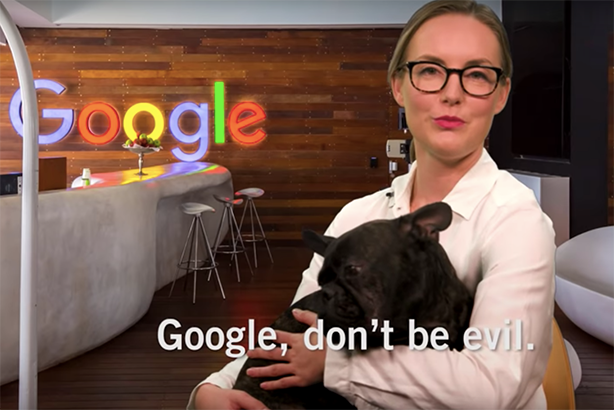
Amnesty International has launched a global campaign to stop Google from releasing a censored search engine app in China.
More than 1,400 Googlers have signed a petition in solidarity with the campaign, including several senior engineers who have
The sensitive project, codenamed Project Dragonfly, blocks search terms such as "human rights" so that it adheres to China’s strict censorship laws.
Under Chinese law, Google would be required to hand over sensitive user data to the government, presenting a real risk that the company would be helping the government persecute people.
Amnesty International called on Google chief executive Sundar Pichai to ditch the project and has rolled out a fake job ad on LinkedIn aimed at Google staff to encourage more to speak out.
In the film, a Google "recruiter" extols the benefits of working at the company before revealing the sinister details of Project Dragonfly.
"Dragonfly is our new prototype search engine being developed for China in order to be compatible with strict online censorship and surveillance controls," the recruiter said.
"Sounds like a mouthful, but it’s actually really simple. We’ll be helping the Chinese government spy on nearly a billion people while also censoring out blacklisted websites, forbidden search terms and public opinion on the internet."
Amnesty International’s researcher on technology and human rights, Joe Westby, said Google should live up to its strapline: "Do the right thing."
"As the world’s number one search engine, Google should be fighting for an internet where information is freely accessible to everyone – not backing the Chinese government’s dystopian alternative," he said.
Amnesty International’s global creative manager, Leila Mountford, added that Chinese citizens deserved better and the campaign was building momentum globally.
"It’s time to #DropDragonfly. Today, we’re showing solidarity with all the Google employees who spoke out, but this is just the beginning," she said.
Google employees are invited to join supporters of Amnesty International around the world and demanding that Google end the project.
A version of this story was first published by



.jpg)
.jpeg)
